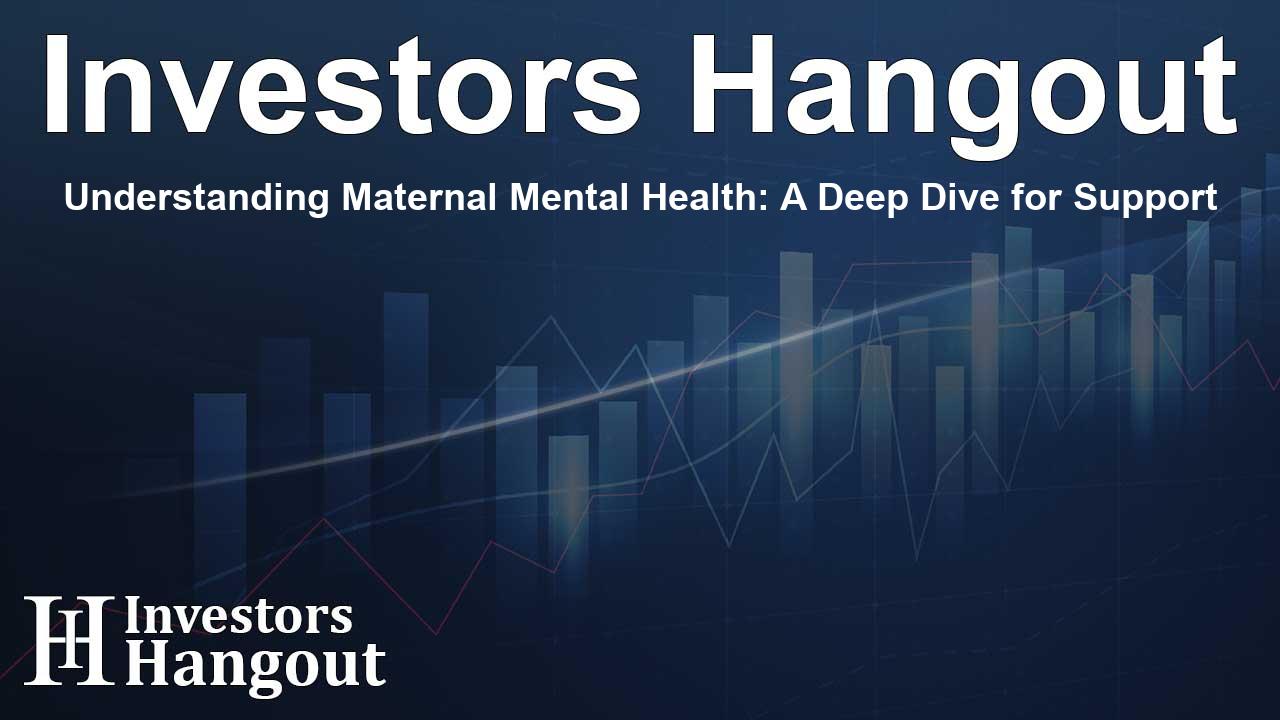Understanding Maternal Mental Health: A Deep Dive for Support

Raising Awareness for Maternal Mental Health
May is a significant month dedicated to promoting maternal mental health, a topic that deserves our attention and understanding. It’s a time to shed light on perinatal mental health disorders, including postpartum depression, anxiety, and other related conditions. These issues affect many new mothers, making it essential for both mothers and their families to be aware of the resources available. The nonprofit organization Postpartum Support International (PSI) plays a pivotal role in this movement, striving to educate and support those affected.
The Prevalence of PMH Disorders
It’s crucial to recognize that perinatal mental health disorders are one of the most common complications during and after pregnancy. Research highlights that one in five mothers encounters significant mental health challenges during this pivotal time. These disorders are not just limited to postpartum depression; they can also encompass anxiety, obsessive-compulsive disorder, and even more severe conditions like psychosis. Understanding this prevalence allows us to advocate effectively for greater support and treatment options.
Statistics Highlighting the Need for Awareness
Each year, an estimated 800,000 individuals face maternal mental health disorders in the U.S. Unfortunately, only about 25% of them receive the treatment they need. Among them, one in five women and at least one in ten men experience various emotional difficulties throughout the perinatal period. The stigma surrounding these conditions often leads many to suffer in silence, unaware that help is available and that their experiences are, in fact, common.
The Role of Postpartum Support International
PSI is dedicated to raising awareness during National Maternal Mental Health Month. Their mission is to educate the public about the realities of perinatal mental health while providing support to those in need. For instance, individuals like Wendy Davis, PhD, PMH-C, have shared their personal experiences navigating postpartum depression. Her insights encourage loved ones to reach out and check in on new mothers actively, prompting necessary dialogues about mental health.
Reducing Stigma Through Action
One of PSI's key initiatives involves reducing the stigma associated with maternal mental health disorders. Simple actions, such as wearing a blue dot pin, serve as visual reminders of the importance of this cause. By recognizing and supporting those struggling, we can foster a community of understanding and kindness.
Available Resources and Support
For those experiencing PMH disorders, know that support is within reach. PSI offers a helpline (1-800-944-4773) where individuals can access assistance in both English and Spanish. Furthermore, the Connect by PSI app provides users with easy access to vital resources and support options. Parents should feel encouraged to seek help without the need for formal diagnosis to initiate the conversation.
Ways to Support a New Mother
If you know someone navigating these challenges, there are meaningful ways to provide support. Simple gestures like making a meal, offering to babysit, or simply being there to listen can profoundly impact a mother's mental well-being. Validation of her feelings, reminding her that she is doing great, and encouraging her to seek help can break down barriers to receiving care.
About Postpartum Support International
Founded in 1987 by a concerned mother, PSI aims to enhance awareness around maternal mental health. This organization provides essential resources and guidance for families, healthcare professionals, and community members to build a supportive network. They equip individuals with the tools necessary to navigate the complexities of perinatal mental health, emphasizing compassion and understanding.
Frequently Asked Questions
What is National Maternal Mental Health Month?
It is a month dedicated to raising awareness about perinatal mental health and the support available for mothers suffering from mental health disorders.
How common are mental health disorders in new mothers?
One in five mothers experience mental health disorders during or after pregnancy.
What resources does Postpartum Support International provide?
PSI offers support through a helpline, online resources, and community support groups.
How can family and friends support new moms?
They can offer practical help, emotional support, and remind mothers of their strengths and worth.
What should a mother do if she feels overwhelmed?
She should seek support from friends, family, or professional resources, recognizing that it is okay to ask for help.
About The Author
Contact Addison Perry privately here. Or send an email with ATTN: Addison Perry as the subject to contact@investorshangout.com.
About Investors Hangout
Investors Hangout is a leading online stock forum for financial discussion and learning, offering a wide range of free tools and resources. It draws in traders of all levels, who exchange market knowledge, investigate trading tactics, and keep an eye on industry developments in real time. Featuring financial articles, stock message boards, quotes, charts, company profiles, and live news updates. Through cooperative learning and a wealth of informational resources, it helps users from novices creating their first portfolios to experts honing their techniques. Join Investors Hangout today: https://investorshangout.com/
The content of this article is based on factual, publicly available information and does not represent legal, financial, or investment advice. Investors Hangout does not offer financial advice, and the author is not a licensed financial advisor. Consult a qualified advisor before making any financial or investment decisions based on this article. This article should not be considered advice to purchase, sell, or hold any securities or other investments. If any of the material provided here is inaccurate, please contact us for corrections.
